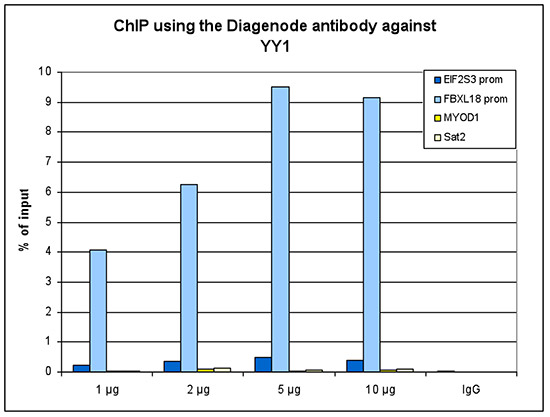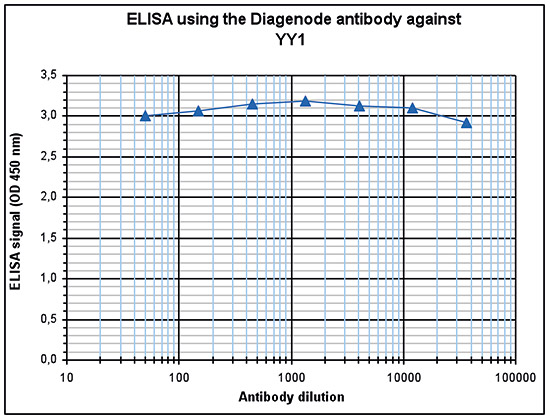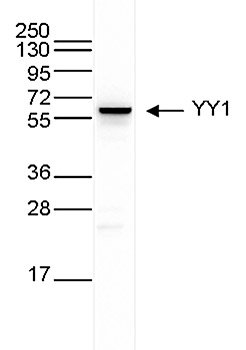YY1 (UniProtKB/Swiss-Prot entry P25490) is a ubiquitously distributed transcription factor which can both activate or repress a large number of cellular and viral genes by binding to sites overlapping the transcription start site. Whether it activates or represses transcription depends upon the context in which it binds. YY1 is thought to direct histone deacetylases and histone acetyltransferases to the promoters of it’s target genes in order to activate or repress transcription, thus implicating histone modification in the function of YY1.









